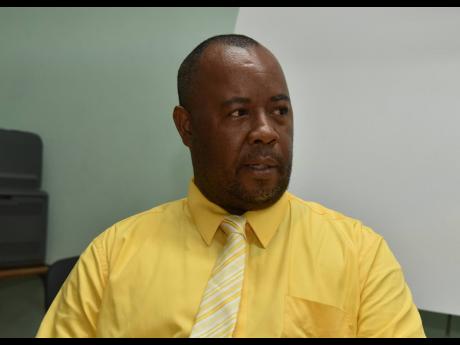School tackles gangs
Papine High empowering boys with business skills to counter influence of crime
Administrators of Papine High School have launched a work-to-earn and mentorship programme to refocus at-risk teenage boys and loosen the influence of gangs that have historically infiltrated the school population. The strategy is reportedly...
Administrators of Papine High School have launched a work-to-earn and mentorship programme to refocus at-risk teenage boys and loosen the influence of gangs that have historically infiltrated the school population.
The strategy is reportedly reaping success, sharpening business acumen and spreading the message of empowerment among schoolboys, many of whom reside in gritty communities like Kintyre, Tavern, and August Town where the lure of the gun and the bravado of donmanship are powerful symbols.
The work-to-earn programme offers training in self-support and entrepreneurial schemes, which have direct socio-economic benefits for youth who do not have enough money to pay for lunches or attend school in comfort.
Principal Leighton Christie says that the intervention was forged in a bid to counter misconduct among boys who had been recruited by gangs in their respective communities. Those associations began to spill over on to the school compound with open conflict.
“But we are trying to put something in place to see how we can assist them and show them another way, instead of putting them out of school,” he said.
In a Gleaner interview, Christie further explained that the boys were trained in managing the finances and operations of a business.
They are also trained in barbering, agriculture, home economics, and other practical skills.
“For example, on a Friday, you may have the home economics students setting up a smoothie bar. So they manage, they do their accounting, they do all the things that they need to do and they sell to the students and they earn,” Christie said of the burgeoning business ventures led by the boys.
There will eventually be programmes specifically geared towards the girls, said Christie, where skills in cosmetology, for example, will be utilised.
Meanwhile, Papine High is also expanding its ‘Young CEO’ agriculture programme, which began last year.
Each student in that programme is allocated a plot of land on the school’s two-acre farm and is allowed to earn money from it. After harvesting their cash crops, the boys are allowed to keep 100 per cent of profits.
Christie said the programme has been well received.
“The boys were so excited, and, trust me, there were some of them who never did agricultural science before, but when they realised what they could have made from it, you know, they gravitated towards it, and so we are trying everything to give them an opportunity,” he said.
The students have been described as an enigma by Demario Williams, the school’s dean of discipline, because they reportedly exhibit poor conduct on the streets but have shown paradoxically different attitudes while on the school’s compound in recent times.
He emphasised that students are significantly influenced by the volatile communities in which they live. However, Williams said that the vast majority have indicated that they do not wish to be products of their neighbourhoods.
“The challenge we are having is that we aren’t seeing enough parental involvement,” the dean said, which makes students slow to regard authority figures.
Seventh- to ninth-grade students show a greater proclivity for conflict than their peers in grades 10–12 who are focused on on exit examinations.
Some teachers have also undergone extensive training in restorative justice programmes.
One programme to be deployed, dubbed ‘Operation U-turn’, will target lower-school students who exhibit problematic behaviours.
The institution has collaborated with the social science departments of the University of Technology and The University of the West Indies, Mona, to host sessions with the troubled teens.
Through that collaboration, the underlying causes of misbehaviour are exposed. Some students receive medical evaluations and are diagnosed with behavioural disorders.
That knowledge allows the school to be better equipped to engage with at-risk children.
“What we need now is to ensure that we help them to be able to function in society and to function as civilised Jamaicans,” Williams said.
“The aim of the department is to ensure that we realise the true potential of these students, because I do believe that, as a school, we are strategically placed and, if we are going to change the communities around us, we have to change these students ... ,” he added.

